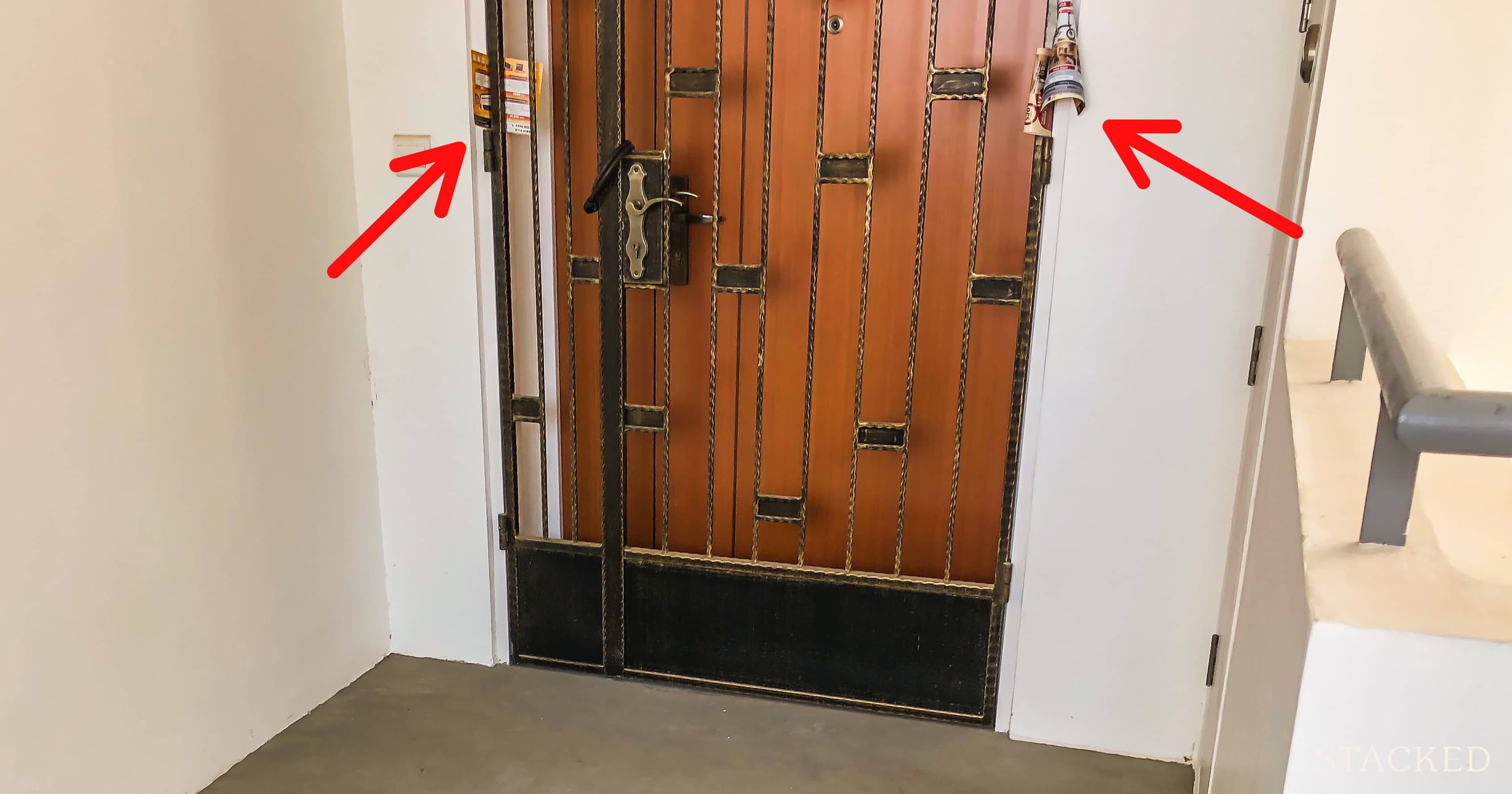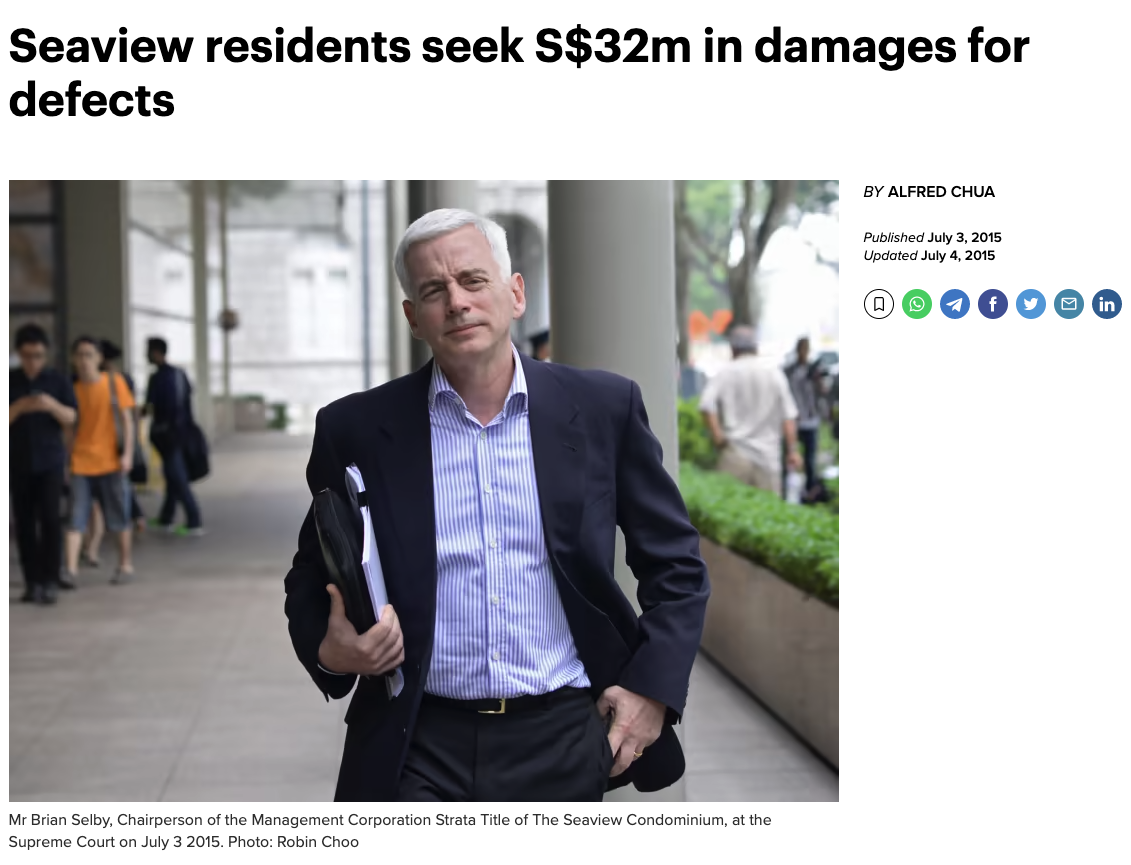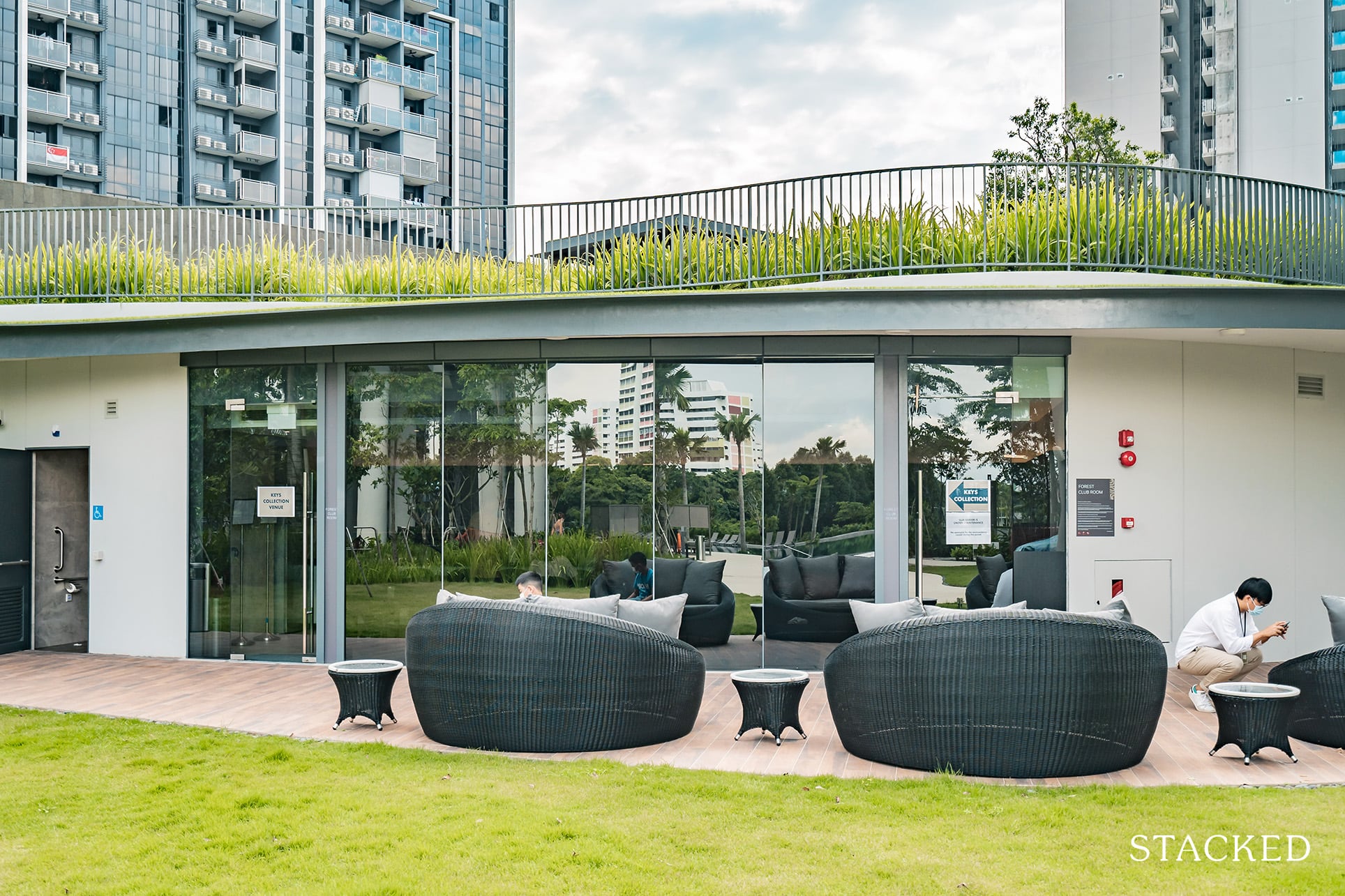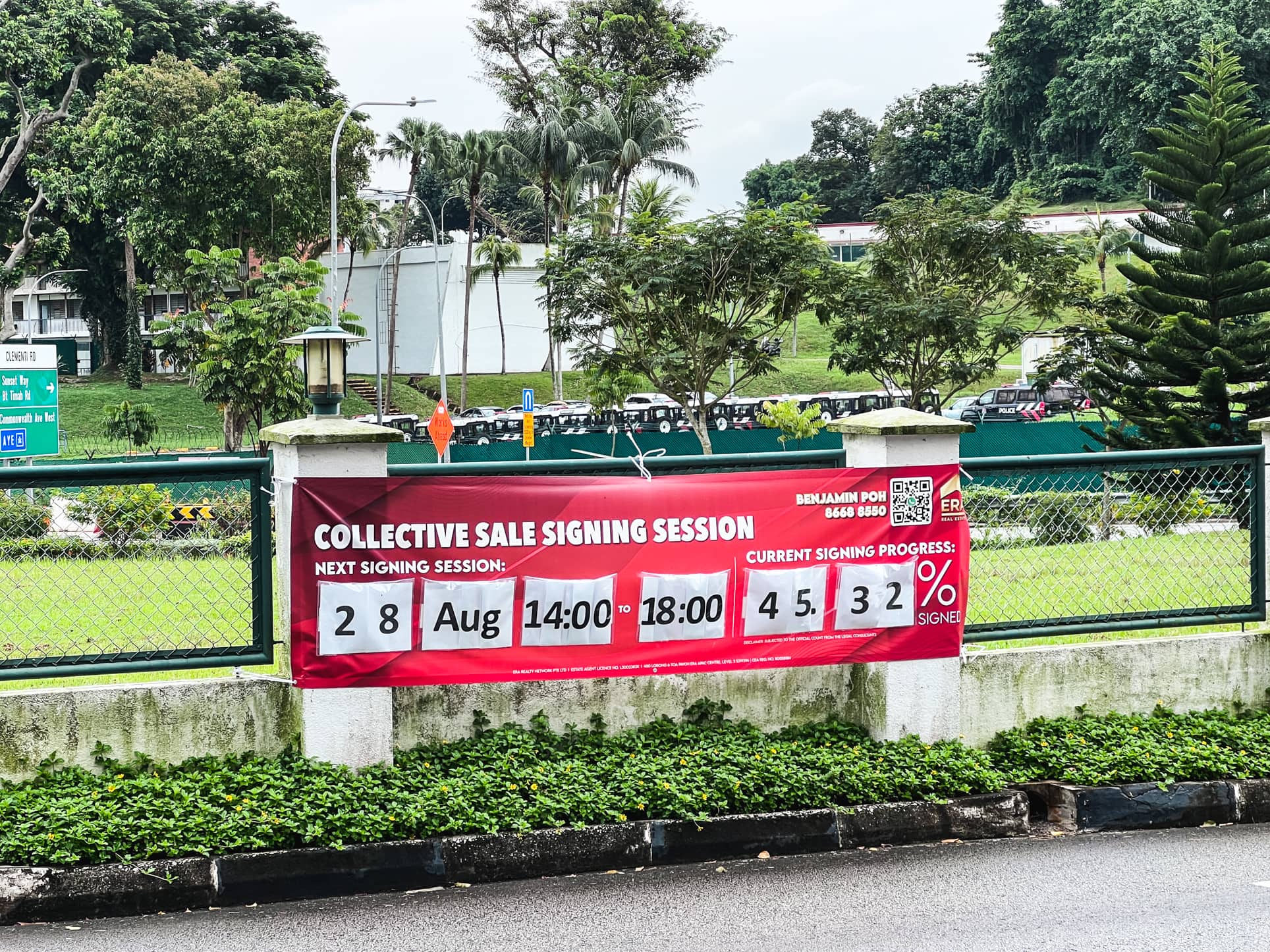
As we near the middle of 2023, a lot of strangeness has surfaced in the property market. From blatant privacy intrusions by agents to new buyers puzzled over key collection times, there are some things that need clearing up. Gathered below are some of the more obscure issues, which you should really know about the property market in Singapore:
Table Of Contents
1. Flyers stuck in HDB doors or gates are actually frowned upon by CEA
Live in an HDB flat? Then you may have found flyers from property agents stuck in your door, or tucked into your front gate. This practice has gone on for so long, many of us assume it’s normal and acceptable; even some property agents seem to have forgotten CEA frowns on it.
As far back as 2019, CEA sent out a message to agents saying:
“Distribute flyers and pamphlets properly. Property agents should distribute flyers and pamphlets properly – these materials should not be visible to members of the public other than the intended recipients. You should not place flyers in front of doorsteps, in between the railings of wrought iron gates, or on the windshields of vehicles as the flyers would likely result in littering.”
But in the hot property market of 2023, we haven’t been able to walk down an HDB corridor at midday, without noticing the doors and gates are practically bristling with property flyers.
The practice may have gotten overboard as early as 2021, when some people even removed flyers from previous agents when putting up new ones (we don’t know if they were actually instructed to do so).
And while most people have just been putting up with this practice, others are getting fed up with the situation:
In any case, it may be time a reminder goes out that this isn’t supposed to be happening, and that this shouldn’t be a normal practice.
2. The “independent contractor” clause is still an ongoing worry
We don’t want to point fingers, but some recent new launches have seen a lot of complaints. These range from leaks to problems with the swimming pool.

This is a reminder of what happened at The Seaview. This initial project was embroiled in a $32 million lawsuit between the owners and developers, over various defects; and the past results of that incident could rear their heads soon.
If we go back to that incident, we see the developer was allowed to defend itself by bringing up independent contractors. To simplify a bit, it means the developer can get off the hook, and the condo owners need to sue the contractor instead.
(We understand that the contractor too, by the way, might be able to claim a sub-contractor is responsible but not them, and so on down the chain).
This is coming back as a worry for two reasons:
First, it means developers can be much harder to hold to account, as they’re always able to deflect the consequences to a contractor. Second, contractors and sub-contractors are rarely large entities with deep pockets, like a developer – even if sued, they may lack the financial means to compensate the condo owners.
This is a dark cloud that’s been hovering over the private property market for some time, and we feel at some point soon it will cause problems again.
3. The TOP date doesn’t mean everyone will have their keys by then
This can be a point of confusion for some new owners, and cause some timing issues. So to clarify: it’s not always true that every buyer will have their keys on the TOP date, or immediately after the TOP date itself.

Developers have specific plans for each project, on which stacks are going to receive the keys first. The reasons are internal and can cover a wide range of reasons – from final-stage inspections to something that has to be rectified in certain units or blocks.
For new launch buyers, it’s important to keep this in mind when planning your move. You don’t want to be caught without accommodation for a few days or weeks while waiting for your keys.
4. Small developments practically controlled by a single family do exist
This tends to happen among boutique developments, and simple apartments (by which we mean private, non-landed homes minus common facilities like pools, tennis courts, etc.)
When you encounter these developments, be wary of the MCST. In some situations, these small projects are developed by wealthy individuals or families; and many of the residents may be related to them by blood.
This results in some families having the majority vote, and utterly dominating a small private condo. Some of the horror stories we’ve heard include:
- Tenants or residents find their pets suddenly barred from green areas or banned alright; because one of the “the family” dislikes it, and votes are taken for new laws.
- A common parking lot is suddenly reserved or a priority space, by a management council that shows favouritism to family members.
- No real voice in general meetings, such as being forced to accept higher maintenance fees because a pricier vendor is a “friend of the family.”
- The “management council” has double standards; residents who are family might seem to have a priority in booking facilities, or the security always seems to take their side in disputes.
While there are legal recourses for all these, most residents – and especially tenants – would rather leave than deal with the time and expense involved.
5. During an en-bloc sale, the pro-sale side tends to have a strong advantage
Despite needing to secure the voting majority, the pro-sale side is the one with an edge. Many tend to be investors who come in expecting an en-bloc sale, or who have been through one before – they tend to congregate and share plans and strategies, to push the idea through to other owners.
Conversely, most owners are blissfully unaware of this group, until the day the big question is popped. When it happens, the other owners tend to be less coordinated, and less well-informed about the proceedings (unless they start learning on a short, high-pressure basis).

In the meantime, pro-sale people are already knocking on doors, or even collecting proxy votes. This was what caused the authorities to restrict the number of proxy votes any individual could collect.
Nonetheless, it’s often an asymmetrical situation, with confused homeowners confronted by a well-organised and planned committee. This is, however, an issue that’s rarely brought up in en-bloc conversations.
6. If you’re facing an en-bloc, don’t assume the bridging loan will suffice
During an en-bloc, the pro-sale committee – or someone else in favour of it – may tell you the wait for sale proceeds is not an issue. The common remark is that “you can use a bridging loan.”
However, some people are told this even if their en-bloc sale proceeds would come much later; and there are cases where proceeds take as long as nine to 12 months to come along.
But here’s the issue: the bridging loan from any bank has a maximum loan tenure of just six months. This is a very short loan, at a rate of about six per cent per annum (it is not as cheap as most mortgages).
So if the developer takes much longer than six months to pay you, you might find yourself in serious financing difficulty. It’s safer to ensure you have added cash on hand, rather than just counting on the bridging loan; and those going from an en-bloc sale to a new property should speak to a realtor about the timeline involved.
Follow us on Stacked and we round up obscure but sometimes important details, which every home buyer or seller needs to know. For a detailed look at specific projects, check out our in-depth view of new and resale properties alike.
Bagikan Berita Ini














0 Response to "Property Agent Flyers On Your Gate Illegal? 6 Surprising Things You May Not Know About Singapore Property ... - Stacked"
Post a Comment